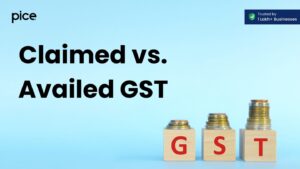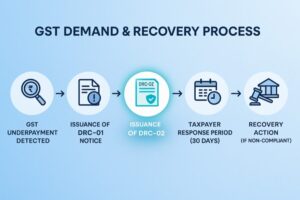Person Liable for Registration Under GST Section 22
- 19 May 25
- 7 mins

Person Liable for Registration Under GST Section 22
- Liability of GST Registration Under Section 22
- Pre-Existing Registrations
- Business Transfer Or Succession
- Arrangement of Amalgamation & Demerger
- Important Definitions:
- Related Concepts Under GST Section 22
- Categories of Persons and Registration Liability
- Supply and Turnover Considerations
- Input Tax Credit and Its Implications
- TDS and Tax at Source
- Conclusion
Key Takeaways
- GST registration is required if turnover exceeds ₹20 lakh (services) or ₹40 lakh (goods), with lower limits for special category states.
- Businesses registered under VAT, service tax, or excise must re-register under GST.
- New registration is needed in cases of business transfer, succession, merger, or demerger.
- Aggregate turnover includes all supplies (taxable, exempt, exports), excluding GST taxes.
- Only registered entities can claim input tax credit, making registration advantageous.
Under the GST system, individuals and businesses dealing in taxable supplies have to register themselves to comply with tax rules. Section 22 of the CGST Act, 2017 relates to the provisions regarding persons chargeable to GST registration.
It mandates compulsory registration for businesses exceeding a specified turnover threshold and for certain categories of suppliers. It also defines the turnover, the inclusions and exclusions of special category states in India and the GST registration requirements due to mergers and demergers.
Explore the details of a person liable to register under GST Section 22 here.
Liability of GST Registration Under Section 22
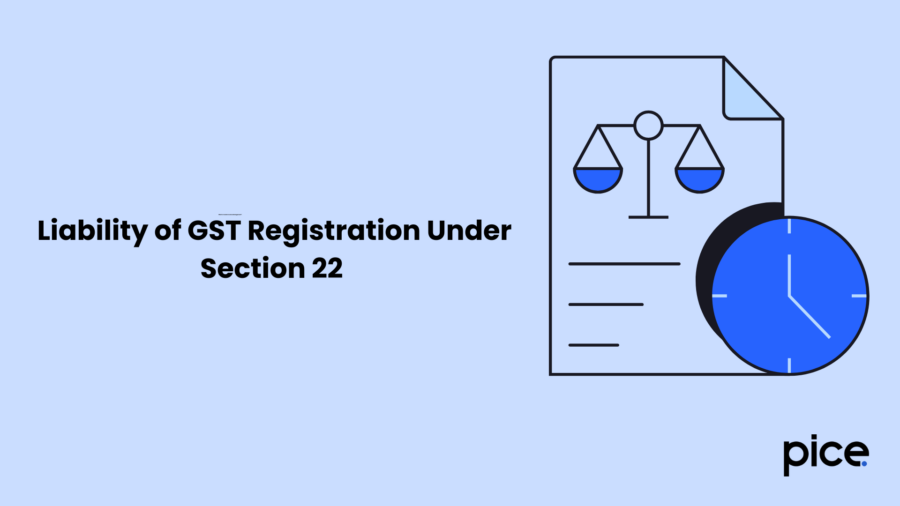
Suppliers of goods and services are liable to register under GST if their aggregate annual turnover exceeds 20 lakh rupees (for services) or 40 lakh rupees (for goods) in states and union territories of India. In other words, if taxable persons provide taxable supplies with the mentioned annual turnover threshold, they have GST liability. However special category states like Mizoram, Nagaland, Manipur and Tripura have a registration threshold of 20 lakh rupees.
Pre-Existing Registrations
Registered person under previous tax laws such as VAT (Value-added Tax), service tax or excise need to register themselves under GST. For instance, if the supply of goods and the supply of services provided by a supplier (earlier and after GST introduction) are not exempt supply, he/she has to register under GST. This ensures tax compliance in India while promoting transparency and accountability.
Business Transfer Or Succession
If there is a transfer of ownership of a business or succession, the new owner needs to obtain GST registration separately, applicable from the date of transfer. This aligns the new GSTIN with the owner’s unique PAN card number for further transactions.
Arrangement of Amalgamation & Demerger
If there is a merger due to acquisition, or a demerger under the Tribunal order or High Court, the transferee company needs to register under GST separately. The applicable date is the date of incorporation that the Registrar of Companies issues.
Important Definitions:
Here are the important associated definitions under GST:
● Aggregate Turnover: Aggregate turnover of a business in India is the taxable, exempt, export, inter-state supplies undertaken by an individual within the country. Notably, it excludes taxes under the GST system. Further, tax liability differs under the reverse charge mechanism wherein the purchaser pays GST.
● Special Category States: Article 279A(4)(g) defines Northeastern and hilly states under this category. However, it excludes Assam, Arunachal Pradesh, Himachal Pradesh, Sikkim, Meghalaya, and Uttarakhand.
● Job Work Transactions: When a registered job worker considers job work as the supplies of the principal after completion of job work, it is excluded from the job worker's turnover.
Related Concepts Under GST Section 22
In addition to the threshold-based liability for registration under Section 22, there are other essential elements to consider for full compliance under the GST regime. These include input tax credit, categories of registration, the extent of supply, and the application for registration process.
Categories of Persons and Registration Liability
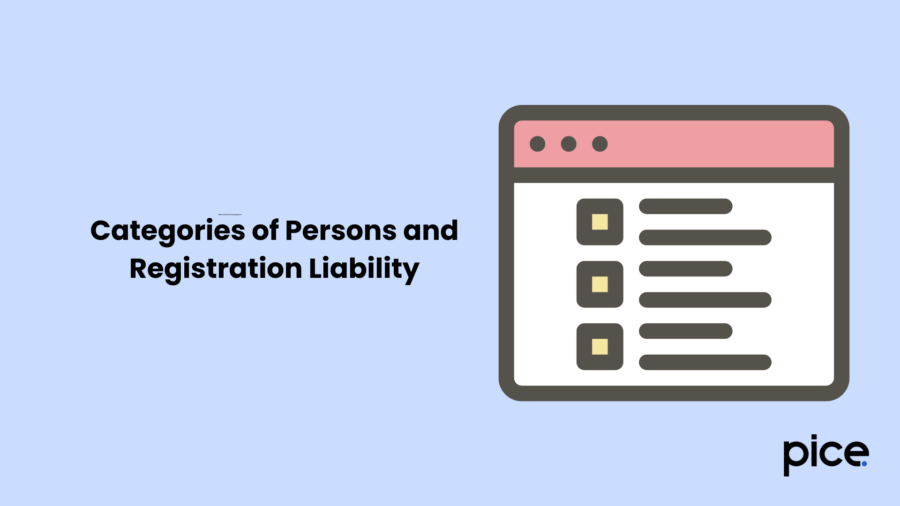
The category of persons required to obtain GST registration includes individuals, Hindu Undivided Families (HUFs), companies, LLPs, and partnership firms, among others. Any taxable persons involved in the supply of products or services above the notified aggregate turnover must apply for compulsory registration.
In contrast, those below the threshold may still opt for voluntary registration to avail benefits such as the credit of input tax on business purchases and improved credibility.
Supply and Turnover Considerations
The extent of supply plays a key role in determining registration liability. This includes both intra-State supply and inter-State supply of goods or services. It’s important to note that all GST supplies, whether taxable or exempt, count toward aggregate turnover, although taxes charged under GST do not.
The registration of persons engaged in intra-State supply is essential if the turnover threshold is breached, particularly in special category states.
Input Tax Credit and Its Implications
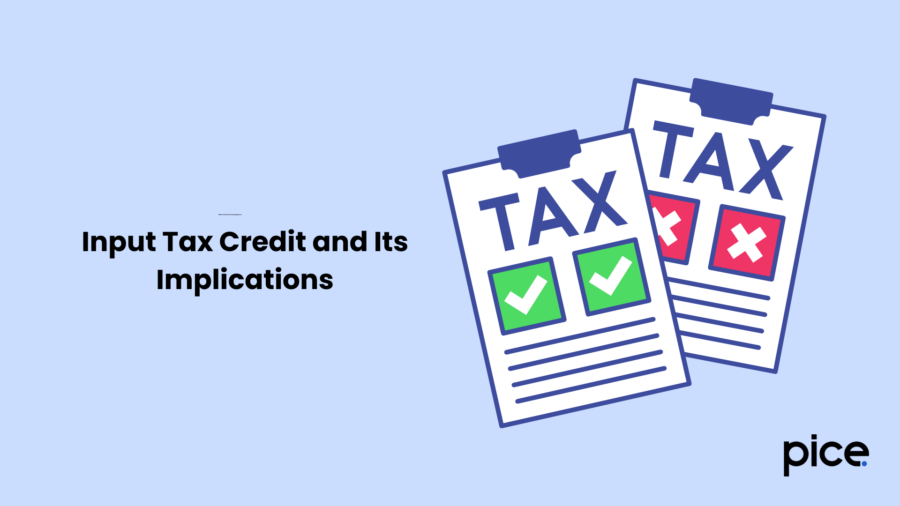
One of the critical benefits of GST registration is the eligibility to claim input tax credit. This allows businesses to offset the GST paid on purchases (inputs) against the tax payable on outward supplies. However, only registered persons can avail credit of input tax, which encourages application for registration even in borderline turnover cases.
TDS and Tax at Source
Certain entities are required to deduct tax at source under GST. This typically applies to government departments or agencies making payments to suppliers. If you're a recipient required to deduct TDS, registering under GST is mandatory, regardless of turnover, and forms part of the extended registration liability framework under Section 22.
Conclusion
A registered person under GST Section 22 is defined based on the aggregate annual turnover of a business. Further, the location of the principal palace of business determines the GST liability. For instance, special category states have a separate annual turnover threshold.
Ensure you are well-aware of the GST laws to comply with Indian tax laws in terms of goods and services supplies and compulsory registration.
💡If you want to streamline your invoices and make payments via credit or debit card or UPI, consider using the PICE App. Explore the PICE App today and take your business to new heights.
 By
By 







